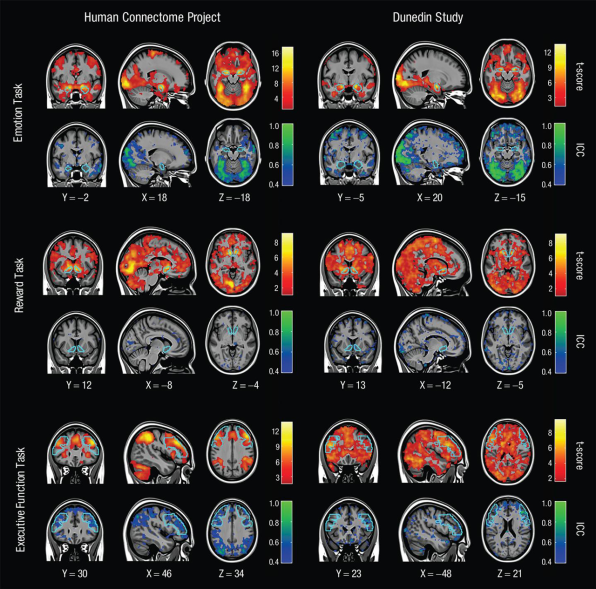Duke University: All brain activity studies are wrong

You know all those studies about brain activity? The ones that reveal thought patterns and feelings as a person performs a task? There’s a problem: The measurement they’re based on is inaccurate, according to a study out of Duke University that is rocking the field.
Functional MRI machines (fMRIs) are excellent at determining the brain structures involved in a task. For example, a study asking 50 people to count or remember names while undergoing an fMRI scan would accurately identify which parts of the brain are active during the task.

The trouble is that when the same person is asked to do the same tasks weeks or months apart, the results vary wildly. This is likely because fMRIs don’t actually measure brain activity directly: They measure blood flow to regions of the brain, which is used as a proxy for brain activity because neurons in those regions are presumably more active.
The researchers reexamined 56 peer-reviewed, published papers that conducted 90 fMRI experiments, some by leaders in the field, and also looked at the results of so-called “test/retest” fMRIs, where 65 subjects were asked to do the same tasks months apart. They found that of seven measures of brain function, none had consistent readings.
This is a mouthful of dirt for hundreds of researchers—and Hariri is one of them. He has carried out fMRI research for 15 years, and is currently running a long-term fMRI study of 1,300 Duke students to discern why some come away from traumatic events with PTSD while others do not. “I’m going to throw myself under the bus,” he says. “This whole subbranch of fMRI could go extinct if we don’t address this critical limitation.”
Read more at www.fastcompany.com
***
PRINCIPIA SCIENTIFIC INTERNATIONAL, legally registered in the UK as a company  incorporated for charitable purposes. Head Office: 27 Old Gloucester Street, London WC1N 3AX.
incorporated for charitable purposes. Head Office: 27 Old Gloucester Street, London WC1N 3AX.
Please DONATE TODAY To Help Our Non-Profit Mission To Defend The Scientific Method.
Trackback from your site.

Charles Higley
| #
We think we know so much and then find out we missed entirely. Several years ago they figured out that mice and rats have very different immune systems compared to humans, making them very, very poor models for human biochemistry. These rodents can handle many things we cannot, including very rotten food and such. That one observation called into question a huge amount of work supposedly related to human systems. How little we know.
Next, I would like to hear about the relationship between exosomes and coronaviruses. Should be very interesting.
Reply